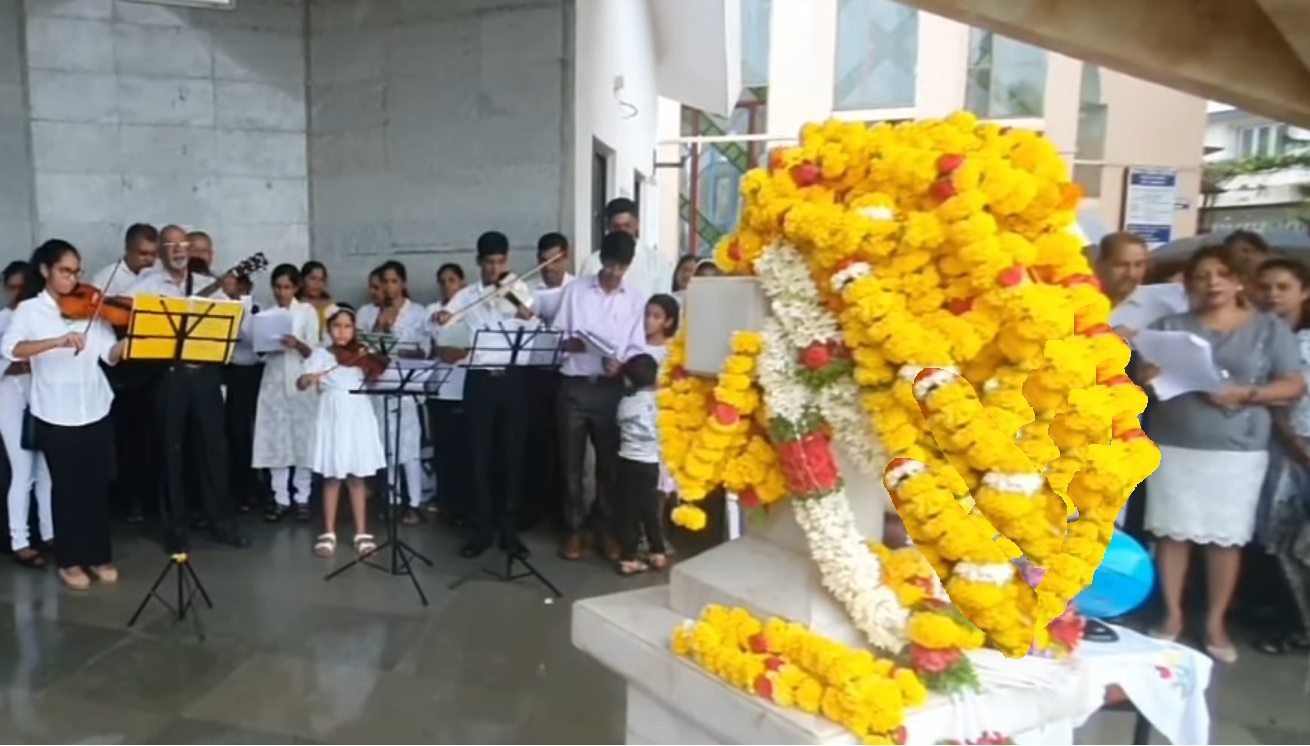
A litany is a structured sequence of petitions and invocations that serve as a prayer. It is a form of congregational prayer typically read aloud as a response between a leader and the congregation. The lead phrase is frequently responded to by reciting "Kyrie Eleison," "Lord hear us," or "Pray for us." A litany can be a prayer of thanksgiving, blessings, praise, forgiveness, or help. This is a kind of folk oratorio comprises of singing hymns and prayers based on Psalm 136.
The Latin word Litania is derived from the Ancient Greek word Litaneía, meaning supplication. There are two parts to the invocations: Virgo clemens, which is praise, and Ora pro nobis, which is prayer. They date back to the fourth century and were eventually included in various public and private worship practices and the Church's liturgy. It is one of the ways to increase our faith and receive material/spiritual favours for raising our invocations that alternate with petitions in a rhythmic and repetitive pattern through an uplifting chorus of voices reaching toward heaven. The Litanies permitted by the Catholic Church for public worship include the Litany of the Holy Name of Jesus, the Sacred Heart of Jesus, the Most Precious Blood of Jesus, the Saints, the Blessed Virgin Mary, and Saint Joseph.
Is the Litany beneficial to our spiritual life?
Litanies might assist us in concentrating on a specific saint or virtue. Pope Sixtus V approved the Marian Litany of the Blessed Virgin Mary in 1587, and it highlights the various titles bestowed upon our Lady and how she aids particular groups or individuals, such as Queen of Families, Health of the Sick, Refuge of Sinners, etc. Liturgies are repetitious because they model proper prayer behavior for us. We should first make an effort to pray "without ceasing." Even when we cannot pray formally "all the time," reciting a litany will assist us in developing a practice of frequent prayer. The idea is to constantly think about God or consider His love in the "background" of our busy lives. Second, by exercising humility, praying litanies helps us remember our dependence on God.
The Holy Name of Jesus litany offers us an excellent opportunity to reflect on the qualities of our Lord and His life while pleading with Him for guidance and support. The Litany of the Most Precious Blood reminds us that the host we consume at Mass is our Lord Jesus Christ's body, blood, soul, and divinity! The Sacred Heart of Jesus Litany is a profound meditation on the strength, justice, compassion, and wisdom of Jesus' heart. We ask Mary to pray for us as we navigate life's joys and sorrows in the Litany of the Blessed Virgin Mary. In the Litany of Saint Joseph, we call upon the spouse of the Blessed Virgin Mary, the foster father and Guardian of the Redeemer, and the patron saint of the Universal Church.
Goa’s Ladainha tradition
In Goa, Litany or Ladainha (in Portuguese) is recited on occasions including Cross Feast, christenings, housewarmings, anniversaries, thanksgiving, and the bridal couple's first entrance into the bridegroom's household or second day at the bride's home. In the fourth century, the litany tradition, which started in Antioch, Greece, spread to the Western world. Portuguese missionaries arrived in Goa in 1510, and Masses were celebrated in Latin, the Church's official language. Since the locals could not understand Latin, they recited rosaries, Litany, and other forms of devotion without a priest.
Singing a Litany at Cross feasts, customarily held in May, became reasonably practical when "Dia de La Cruz," or the True Cross on which Jesus was crucified, was found on May 3 by St. Helena, mother of Constantine the Great, during her pilgrimage to the Holy Land in about 326. May is a Litany month for various reasons, including children's summer vacation, village cross/chapel feast, cashew feni and mangoes season, and an annual trip to the ancestral house for pre-monsoon repairs.
The Ladainha during the Cross feast is held nine days, like novenas before a feast, culminating on the feast day. Every day, Cross/Chapel committee members or families organise the Litany. 'Armaçao' (embroidered drapes) embellishes the cross or chapel on the feast day. A Ladainha is also essential to the midnight vigil schedule during the sixth day following birth. According to the traditions, chanting the sou disanchi Ladin blesses the baby and dispels evil spirits.